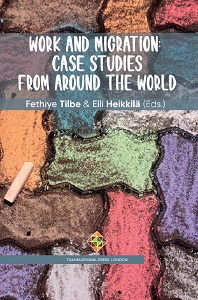Human capital development and skilled immigrants labour market experiences in South Africa: An overview
Human capital development and skilled immigrants labour market experiences in South Africa: An overview
Author(s): Sikanyiso Masuku, Sizo Nkala
Subject(s): Labor relations, Migration Studies
Published by: Transnational Press London
Keywords: Human capital development; skilled immigrants labour; market experiences in South Africa; overview;
Summary/Abstract: Boasting a significantly bigger economy than those of its regional neighbours, South Africa has become a preferred destination for millions of both skilled and unskilled migrants from the Southern African region and beyond, especially since 1994. Voluntary, skilled immigration and its overall benefits to the destination country (increases in employment, capital accumulation and income) are not phenomena exclusive to South Africa as they have increased globally since the 1960s (Facchini & Mayda, 2012). Voluntary immigration to South Africa during the Apartheid era was, however, fraught with many challenges, as the national policies on entry, residence, temporary migration, immigration (permanent residence), and even refugee status, were all racialized and premised on immigration control. Through racialized immigration, a two-gate system under the Aliens Registration Act No 26 of 1936 (enacted in 1939) made it possible to prevent black African immigrants from entering the country, thereby limiting those that did enter to the thriving mining and agricultural sectors (Handmaker & Parsley, 2001, p. 41). Meritocracy was thus not the principal basis upon which voluntary immigrants (skilled or otherwise) were admitted into the country.
Book: Work and Migration: Case Studies from around the World
- Page Range: 87-102
- Page Count: 16
- Publication Year: 2021
- Language: English
- Content File-PDF

